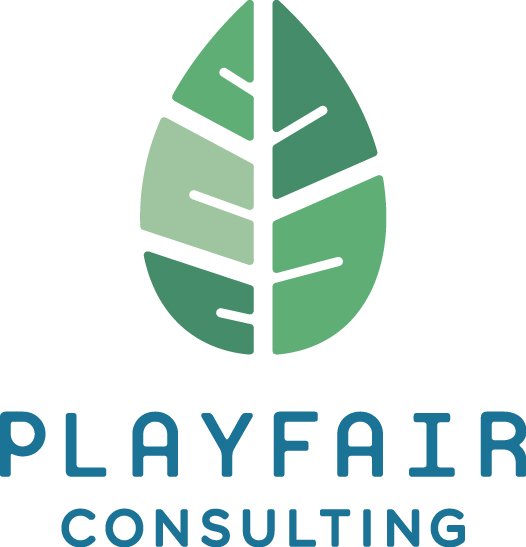OCD Subtypes (and why they make me nuts)
The internet is amazing in so many ways but I’m not thanking it for naming a million OCD subtypes. I’m no internet historian, but it seems to me that this concept of differentiating OCD based on the focus of the obsessions has come from online support groups about OCD.
Some common subtypes I hear about include:
Relationship-OCD (ROCD)
Pedophile-OCD (POCD)
Sexual Orientation-OCD (SO)
Safety-OCD
Let me differentiate these “subjects of obsession” from truly different OCD-related disorders. Illness Anxiety Disorder (IAD), body-focused repetitive behaviors (BFRBs), and body dysmorphic disorder (BDD) are related but separate disorders that benefit from similar conceptualization to OCD but are truly a little bit different.
OCD subtypes are just descriptors of different topic areas OCD can focus on.
The core of all “OCD subtypes”
All OCD is anchored in uncertainty around inherently fuzzy questions. Am I safe, attractive, healthy, moral, a “good” person, responsible, A MONSTER!? How can any one of us prove that we’re safe, attractive, healthy, moral, good, responsible, etc? We can’t and OCD does NOT like that. OCD anchors on the fact that you can’t prove the null hypothesis. We can’t prove that something bad won’t happen. We can’t eliminate all uncertainty but that doesn’t stop OCD from trying (argh).
**Below, I’m going to use the verbiage suffers report their experience in, so please don’t hold me to clinically-appropriate language for a therapist here.**
For R-OCD, how can I prove that I’m a perfect partner? How do I know my partner is perfect for me? How do I know there isn’t someone better out there? How do I know this person is “the one?” Am I a bad person for thinking my boyfriend’s got a gut? Am I a monster for fantasizing about leaving my relationship sometimes? If I have sexual fantasies about other people, am I being unfaithful? These questions drive sufferers to ask for so much reassurance, partners may ACTUALLY leave. It’s a self-fulfilling prophecy.
P-OCD is SUPER disturbing to folks who suffer from it becuase it asks lovely questions like: What makes pedophiles like children? How do I know I’m not a pedophile? What if I am and I just don’t know it? I think I felt my crotch twitch when a child was present and therefore I must be a monster. How can I prove I would never hurt a child? Perhaps I should monitor myself for sexual reactions and sensation to prove I’m not attracted to children <———- Spoiler alert - this makes it WAY worse. Try paying attention to your loins right now… how can you NOT feel sensation there? You don’t leave this exercise without being sure you’re awful.
SO-OCD asks similar questions about sexual orientation: What if I’m gay? Or what if I’m straight but I have previously identified as gay? What if I have an intrusive thought of a same sex person when masturbating? Does that make me gay? How does someone know they’re gay? OCD will not take “I don’t know… I just know.'“ as an answer which is honest-to-god most people’s actual answer about how they know their sexual orientation. OCD isn’t having it.
Safety-OCD or harm-OCD involves wondering whether you might hurt yourself or another person. What if I’m driving down the road and I JUST YANK THE STEERING WHEEL INTO THE DITCH AT 80 MPH!? What is stopping me!? How can I know I won’t stab myself or a family member with the knife set? What if I feel a slight impulse or have an intrusive thought about it? Is that a warning that I’m a danger to myself or others? And anchoring to all to all of these subject areas is “Am I going crazy?”
In all cases, you cannot prove absolute safety. None of us can but OCD cannot let it go and drives suffering that is intense and real and most notably, tends to pick on things most important to the person at hand.
In every one of these cases, you will see a pattern of obsessing about risk or uncertainty, seeking reassurance from other people, therapists, doctors, GOOGLE, support groups, and doing other things like monitoring behaviors and sensations, to increase a sense of safety. Unfortunately, the more suffers engage in these safety behaviors, the worse the OCD gets. You cannot prove the null hypothesis. Remember that from high school science? No amount of reassurance can prove you’re NOT at risk.
In every case, disengagement from the OCD cycle is the key to reducing the disability caused by the OCD. We do this slowly and consistently over time, gradually working up to handling worse and worse triggers without engaging in the cycle.
As a note to therapists, of course we need to listen to our client’s concerns and provide compassion and comfort. We can’t start therapy saying “Yah yah yah I don’t care what the obsession is we’re working on the process…” But don’t be too worried about addressing the content of the obsessions in your conceptualization. While it matters to the CLIENT, the subject of the obsession doesn’t matter to the conceptualization or treatment plan in any substanitive way.
